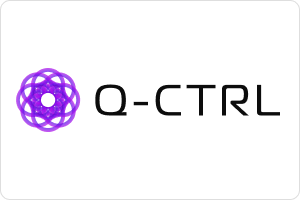PROBLEMS QUANTUM SOLVES
Automotive & Logistics
One-tenth of all potential quantum computing use cases under exploration could benefit the automotive and logistics industry. It is expected that early value-add will come from resolving complex optimisation issues, with large automotive companies already experimenting with quantum applications for vehicle routing and fuel cells.
AUTOMOTIVE & LOGISTICS
Transport optimisation
Computational challenges from the transport and logistics sector include combinatorial optimisation problems such as scheduling, vehicle routing and rostering. Problems of this kind are hard to solve using classical compute.
Logistics and manufacturing
By utilising quantum computing, sectors such as logistics and manufacturing are expected to see benefits across various use cases: from optimised maritime routing to better disruption management and process optimisation.
Materials research
Quantum Computing is a promising technology to transform simulations in materials science and computational chemistry. It is predicted to enable a more efficient way to simulate the properties of materials and molecules.
Security & encryption
Factorisation powered by quantum will be key to maintaining security of vehicles in a post-quantum encryption world: particularly with the use of new vehicle technologies such as vehicle-to-infrastructure and communications.
Optimising wind tunnels
The wind tunnel is a tool used for research and obtaining aerodynamic data. It studies the air effects when passing through a motorbike or a car. Engineers use wind tunnels to verify whether potential ideas look promising in computer simulations work in real-world conditions and to analyse the effectiveness of different concepts, components, and upgrades.
Wind tunnel testing is a critical stage for optimising aerodynamic performance and the design of cars and motorcycles. OQC is currently exploring ways to improve wind tunnel performance with a leading automobile manufacturer.
Optimisation in rail travel
Public rail transport networks face many challenges, from planning operations to managing infrastructure for safe and feasible operations. Central to addressing these challenges is the optimisation of route planning, scheduling, and crew management. The billions of potential ways to arrange train schedules in a large network mean simulating them on conventional supercomputers rapidly becomes impossible.
Q-CTRL, in collaboration with the Department for Transport (DfT) in the UK and Network Rail, is looking into a new approach by harnessing the power of OQC Toshiko.
WE ARE WORKING WITH



